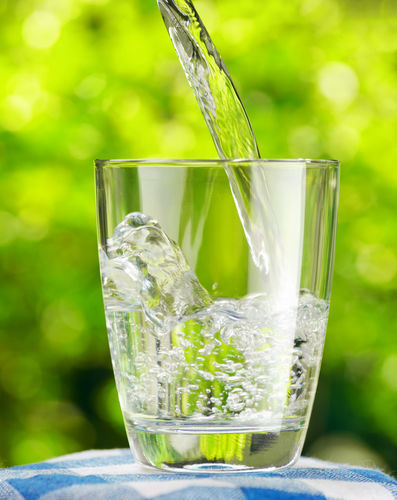Question: I recently moved to Arizona and heard the water here is “crunchy” or “you can chew the water.” What does that mean?
Answer: Well, “crunchy” is one way to describe it.
The reason for that analogy is that we get our water from a variety of sources. Tucson gets most of its water from the Central Arizona Project, or CAP. Arizona’s water has to travel a long distance to reach our homes. Along the way, it accumulates high levels of dissolved minerals like calcium and magnesium. If you buy your water from the city, it is purified for safe drinking, but still may have floaters.
Most of the water in Arizona is between 15 and 25 grains per gallon, which is considered “extremely hard” by the Arizona Water Quality Association. The hardness is really dissolved rock. The average family of four will have more than 15 pounds of rock per year in their water for each grain of hardness.
Water suppliers periodically test the water and usually publish an annual report, often found on municipality or utility websites. You can check your area’s water conditions over the past five years with the Environmental Working Group’s program called what’s in your water.
Q: What is the difference between a water softener and a whole home water system?
A: Water softeners can improve the “working water” throughout the home (water used for bathing, cleaning, laundry, etc.). However, softeners are not “purifiers” and are not designed to improve drinking water.
Mike Maddox, general manager of Rosie-Certified Partner, Kinetico Water Systems tell us that a whole house filtration combination hybrid system will soften and remove chlorine, odors and tastes from the water. This would give you drinkable water throughout the home that is similar to having a refrigerator filter on the whole house. The whole house hybrid system will also increase the life of your appliances pipes and plumbing fixtures. Your laundry, skin and hair will be softer. There is less spotting on dishes, less mineral build-up in tubs, showers and toilets and reduced cleaning time.
Q: There seems to be a lot of water treatment companies. Do you have any suggestions for choosing a company?
A: Start by shopping for a company, not for a piece of equipment. These devices are major investments. Buy them from someone you trust to help you out if you have problems or just need advice. The most critical aspect of buying water treatment equipment is to ensure that it has been certified by the Water Quality Association. If it hasn’t, do not consider buying or leasing it.
Do business with a dealer that will not only sell you a water treatment system but also will install it, service it and sell salt (for the water softener) and other supplies you may need over the years.
Choose a company that rents as well as sells water treatment equipment. That way, you can try out a device before buying it. A company that rents equipment intends to stick around for a long time.
Find out if the company services all brands of water treatment equipment or just its own. Dealers who repair and maintain all brands can help you choose the right piece of equipment for your needs rather than the one that will put the most money in their pockets. And they tend to be better known in the community because they provide service to people with all kinds of equipment.
Ask if the company will deliver salt for your water softener should you be unable to pick it up. Whether you use this service or not, the one that says “yes” is probably one that puts customer service at the top of its priority list!
Q: How do I know what kind of water treatment system I need?
A: There are a number of things to consider:
- The hardness of your water
- The size of your plumbing system
- The size and configuration of your home
- Your estimated usage of water
- Your budget
- The type of system you want; whole home or just the refrigerator and kitchen tap
- The manufacturer’s warranty if you buy vs. rent
A reputable water treatment company can help you determine the appropriate one for your needs.
Q: How often should I change my water filter?
A: It depends on the type of system you use.
Most filters on refrigerators last about six months. Refrigerator filters clear contaminants by forcing water through activated carbon filters.
Filters in pitchers or carafes often need changing every two to five months to be effective. Once the carbon gets covered with contaminants, the water passes through untreated.
Note that some Reverse Osmosis, or RO filters, cost $100 to $200. Some refrigerator filters from the original manufacturer can be $40 to $50 or more. Filters for pitchers are much less, sometimes as low as $15 for a pack.
Generic filters can be less costly. However, manufacturers have complained that many cheap, off-brand and generic filters that seem to fit your refrigerator perfectly will do a poor job of purifying water and might damage the refrigerator. Check those bargains out carefully before you buy.
For a whole house reverse osmosis system, carefully read the owner’s instruction manual for tips on when and how to replace the filter and/or the membrane. Some filters and membranes can last as long as two years, but some need replacing before that.







